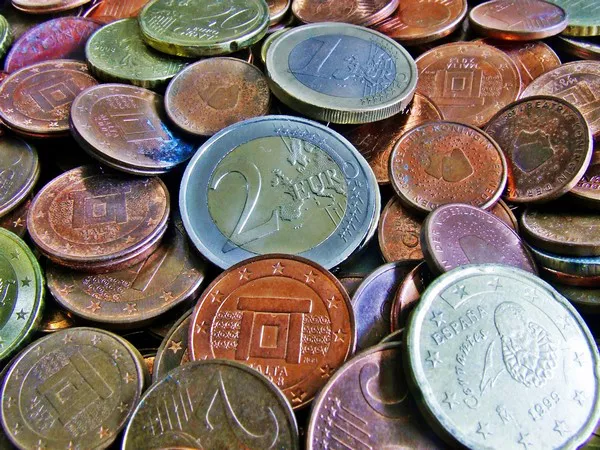The dynamics of global currencies play a crucial role in shaping economic outcomes, influencing trade balances, investment decisions, and overall market stability. Among the myriad of currency pairs, the relationship between the US dollar (USD) and the euro (EUR) holds particular significance, given their prominence in international trade and finance. When the dollar depreciates against the euro, it triggers a cascade of effects across various sectors and regions, leading to winners and losers in the global economic landscape. In this article, we delve into the intricacies of currency fluctuations, identifying the key stakeholders poised to benefit when the dollar weakens against the euro.
Export-Oriented Industries
One of the primary beneficiaries of a depreciating dollar against the euro is export-oriented industries, particularly those based in the Eurozone. As the dollar weakens relative to the euro, goods and services exported from Eurozone countries become comparatively cheaper for American consumers. This results in increased demand for Eurozone exports, leading to higher sales volumes and potentially enhanced profitability for exporters. Industries such as automotive, machinery, pharmaceuticals, and luxury goods stand to gain significantly from this trend, as they capitalize on the price competitiveness of their products in the US market.
Additionally, a weaker dollar makes imports from the United States more expensive for Eurozone consumers, thereby stimulating domestic production and consumption. This can further bolster the competitiveness of Eurozone industries, fostering job creation and economic growth within the region.
Tourism and Hospitality
The tourism and hospitality sectors also stand to benefit from dollar depreciation against the euro. A weaker dollar makes travel to Eurozone countries more affordable for American tourists, as their purchasing power increases relative to the euro. This encourages higher levels of inbound tourism, leading to increased revenues for airlines, hotels, restaurants, and other tourism-related businesses in Eurozone destinations.
Conversely, Eurozone residents may find traveling to the United States relatively more expensive due to the stronger euro, potentially leading to a shift in travel preferences towards domestic or other more affordable destinations outside the US.
Foreign Investors
Currency depreciation can present attractive opportunities for foreign investors, particularly those holding assets denominated in euros. When the dollar weakens against the euro, the value of euro-denominated assets appreciates in dollar terms. This means that foreign investors holding assets such as stocks, bonds, or real estate in the Eurozone may experience capital gains as a result of currency fluctuations.
Furthermore, a depreciating dollar can incentivize foreign direct investment (FDI) in Eurozone economies, as investors seek to capitalize on the favorable exchange rate environment. This influx of investment can stimulate economic activity, create jobs, and contribute to the long-term development of Eurozone markets.
Debtors with Dollar-Denominated Liabilities
For entities that have borrowed in US dollars but generate revenues in euros, a depreciation of the dollar can alleviate the burden of servicing dollar-denominated debt. As the euro strengthens relative to the dollar, the cost of servicing dollar-denominated debt decreases in euro terms, potentially improving the financial position of such debtors.
This scenario is particularly relevant for multinational corporations with operations in the Eurozone that have taken advantage of historically low interest rates in the United States to borrow in dollars. A weaker dollar reduces the effective cost of borrowing for these entities, freeing up resources that can be allocated towards strategic investments, debt reduction, or other value-enhancing initiatives.
Competitive Advantage for Eurozone Economies
Overall, a depreciating dollar against the euro can confer a competitive advantage upon Eurozone economies in the global marketplace. The enhanced price competitiveness of Eurozone exports, coupled with increased tourism revenues and attractiveness to foreign investors, can contribute to stronger economic performance and improved trade balances within the region.
Moreover, currency depreciation can serve as a natural stabilizer for Eurozone economies facing external headwinds, such as weak demand or economic downturns in other regions. By boosting export competitiveness and stimulating domestic demand, a weaker dollar can help offset external shocks and support economic resilience in Eurozone countries.
See Also GBP: Which is bigger” href=”https://fxcurrencyconverter.com/archives/54660″>Euro vs. GBP: Which is bigger
Conclusion
In conclusion, the beneficiaries of dollar depreciation against the euro span a diverse array of stakeholders, ranging from export-oriented industries and tourism businesses to foreign investors and debtors with dollar-denominated liabilities. While the precise impact may vary depending on individual circumstances and market dynamics, the overall effect is often characterized by increased competitiveness, enhanced profitability, and improved economic prospects for Eurozone economies.
As global markets continue to evolve and currency relationships undergo fluctuations, understanding the implications of currency movements becomes increasingly important for businesses, investors, policymakers, and consumers alike. By staying attuned to these dynamics and adapting strategies accordingly, stakeholders can position themselves to capitalize on opportunities and navigate challenges in an ever-changing economic landscape.


